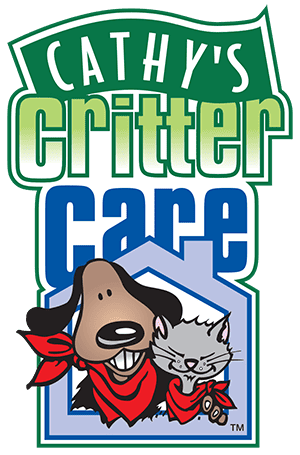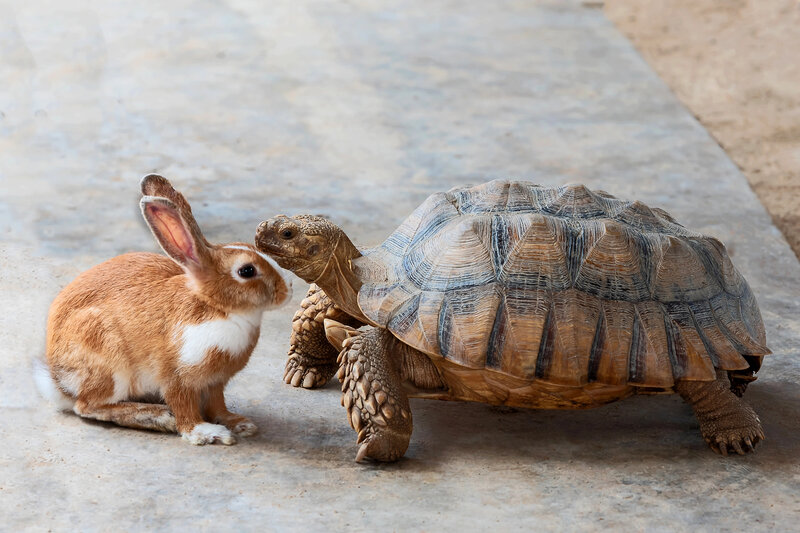Thinking about adding a furry or shelled friend to your vegan household? You’re not alone! Many vegans and vegetarians are on the lookout for pets that share their plant-based lifestyle.
From cuddly rabbits and guinea pigs to the more unconventional tortoises, there’s a whole world of vegetarian pets that can thrive on a meat-free diet. But it’s not just about feeding them veggies; ensuring these pets lead healthy, happy lives requires a bit of know-how and a lot of love. Whether you’re drawn to these animals for ethical reasons, environmental concerns, or the allure of shared dietary habits, this article dives into what it takes to care for vegetarian pets.
We’ll explore the best plant-loving companions for vegan owners, how to meet their nutritional needs and the joys they bring into our lives. Ready to find your next non-human vegan buddy? Let’s jump in!
What are Vegetarian Pets
Vegetarian pets are animals that thrive on a diet devoid of meat, relying instead on plant-based foods. This dietary preference is primarily suited for pets that are naturally herbivorous, such as rabbits, guinea pigs, and certain types of rodents, who can fulfill their nutritional needs through vegetables, fruits, and grains. However, the concept of vegetarian pets has also extended to traditionally carnivorous animals like dogs and cats, though this requires careful planning to meet their dietary requirements without animal protein.
The primary goal of maintaining vegetarian pets often stems from the pet owner’s ethical, environmental, or health concerns associated with meat production and consumption. For herbivorous pets, a vegetarian diet aligns with their natural feeding habits, ensuring they receive a balanced intake of nutrients. On the other hand, for pets like dogs, which are omnivores, and cats, which are obligate carnivores, the transition to a vegetarian diet demands a meticulous approach to avoid nutritional deficiencies.
This includes supplementing essential nutrients that are typically derived from animal products, such as taurine for cats and certain amino acids and vitamins for dogs. The rise in vegetarian pet ownership reflects a broader trend towards vegetarianism and veganism in society, with pet owners seeking to extend their dietary principles to their animal companions. However, it’s crucial for pet owners to consult with veterinarians to devise a diet that ensures their pets receive all necessary nutrients for a healthy life.
The debate around vegetarian diets for pets, especially carnivores, remains contentious, with strong opinions on both sides regarding animal welfare and nutritional adequacy. In summary, vegetarian pets are those that can either naturally sustain on a plant-based diet or have been transitioned to such a diet under careful guidance to ensure their well-being. This lifestyle choice for pets mirrors the growing inclination towards plant-based diets among humans, driven by various ethical, environmental, and health motivations.
Why Vegan Owners Prefer Vegetarian Pets
Vegan pet owners often choose vegetarian pets due to a deep ethical alignment with veganism. They aim to extend their personal beliefs about animal rights and environmental conservation to their pets’ lives. This choice reflects a desire to minimize the ecological footprint associated with traditional pet diets, which often rely on meat-based foods.
Additionally, there’s a belief in the health benefits that a plant-based diet can offer pets, mirroring the perceived advantages of veganism for humans. However, it’s crucial for these owners to ensure their pets’ diets are well-balanced, meeting all nutritional needs to maintain their health and well-being. This approach requires careful planning and, often, consultation with veterinarians to prevent nutritional deficiencies and ensure the pets thrive on a vegetarian diet.
Ethical Alignment with Veganism
Vegan pet owners often prioritize their pets’ diets to reflect their ethical stance against animal exploitation and environmental degradation. By choosing vegetarian diets for their pets, they aim to reduce the demand for meat-based pet food, which is linked to animal farming and its associated environmental impacts. This ethical alignment underscores a commitment to living a lifestyle that minimizes harm to animals and the planet.
Health Benefits for Pets
Adopting a vegetarian diet for pets can also be motivated by the potential health benefits. For some pets, especially those naturally herbivorous, a well-planned vegetarian diet can lead to improved digestion, better weight management, and a reduction in food allergies. These benefits hinge on the careful selection of plant-based foods that meet the pet’s nutritional requirements, emphasizing the importance of consulting with a veterinarian to ensure the diet supports the pet’s overall health and vitality.
Considerations Before Choosing a Vegetarian Pet
Before opting for a vegetarian pet, several key factors need careful consideration. Firstly, space requirements vary significantly among vegetarian pets; small animals like guinea pigs might be well-suited for apartments, while larger ones such as tortoises may need more room. Time commitment is another crucial aspect, as daily care, interaction, and ensuring a balanced diet take considerable effort.
Additionally, understanding the nutritional needs of vegetarian pets is essential. They require specialized diets that often include commercial pellets supplemented with fresh vegetables to meet their specific health requirements. Prospective pet owners must be prepared to meet these needs to ensure their vegetarian pets live healthy, fulfilled lives.
Space Requirements
| Pet Type | Minimum Space Requirements | Ideal for |
|---|---|---|
| Rabbits | 12 square feet (cage space), plus 32 square feet (exercise area) | Small apartments with additional space for exercise |
| Guinea Pigs | 7.5 square feet (minimum), 10.5 square feet (preferred) | Small apartments |
| Tortoises | 10 square feet (indoor enclosure for small species), outdoor enclosures for larger species | Large houses with gardens |
Nutritional Needs
| Pet Type | Key Nutrients | Examples of Foods |
|---|---|---|
| Rabbits | High fiber, low fat | Hay, leafy greens, limited fruits |
| Guinea Pigs | Vitamin C, fiber | Bell peppers, kale, Vitamin C fortified pellets |
| Tortoises | Calcium, vitamins | Dandelion greens, kale, calcium supplements |
Time Commitment
A significant time commitment is essential for the well-being of vegetarian pets. Daily responsibilities include feeding, habitat maintenance, and health monitoring.
Daily Care and Interaction Time
Daily care and interaction are critical for fostering a healthy bond and ensuring the mental and physical health of your pet. Consistent interaction helps in monitoring their well-being and promoting a happy life.
Specialized Vegetarian Diets
Catering to the specialized dietary needs of vegetarian pets often involves a combination of commercial pellets and fresh vegetables. These diets are formulated to provide the comprehensive nutrition required by different species.
Popular Vegetarian Pets for Vegan Owners
For vegan owners looking to share their home with a pet that aligns with their ethical and dietary values, several vegetarian pets stand out as popular choices. Rabbits, guinea pigs, and tortoises are among the top picks, each with specific care needs and dietary requirements that make them well-suited for owners committed to a vegetarian lifestyle for themselves and their animal companions.
Rabbits
Rabbits are favored by vegan pet owners for their sociable nature and compatibility with a vegetarian lifestyle. Their diet requires careful management, focusing on a low-fat, high-fiber regimen to maintain health and vitality. Popular breeds for companionship include the Netherland Dwarf, Lionhead, and Mini Lop, known for their friendly demeanor and manageable size.
It’s important to provide them with unlimited hay, a variety of leafy greens, and a small quantity of pellets to ensure a balanced diet.
Low-fat, High-fiber Diet Needs
A rabbit’s diet primarily consists of hay, fresh vegetables, and a limited amount of fruits, ensuring they receive the necessary fiber for digestive health without excessive fat. Providing a variety of vegetables like romaine lettuce, kale, and carrot tops can help meet their nutritional needs while keeping their diet interesting.
Guinea Pigs
Guinea pigs are another popular choice, cherished for their friendly demeanor. Unlike rabbits, they cannot produce vitamin C on their own and require supplementation through their diet. Foods rich in vitamin C, such as bell peppers, broccoli, and strawberries, should be included daily to prevent deficiency.
Vitamin C Supplementation Required
To meet their nutritional needs, guinea pig diets should include vitamin C-rich foods like bell peppers and leafy greens or specially formulated pellets that contain added vitamin C. A balanced diet also includes a constant supply of hay to aid in digestion and maintain dental health.
Tortoises
Tortoises appeal to those seeking a long-lived companion. They thrive on a varied plant-based diet, which can include a wide range of vegetables, fruits, and specially designed tortoise food. Common species kept as pets include the Russian Tortoise and Sulcata Tortoise, which can have lifespans exceeding 50 years, requiring a long-term commitment from their owners.
Varied Plant-based Diet
The dietary needs of tortoises can vary significantly among species, but generally, a mix of calcium-rich leafy greens and vegetables forms the basis of their diet, supplemented with occasional fruits for variety. Foods like dandelion greens, kale, and squash can provide essential nutrients, while calcium supplements may be necessary to ensure shell health.
Feeding Vegetarian Pets
Feeding vegetarian pets requires a comprehensive understanding of their unique dietary needs to ensure they receive all essential nutrients for a healthy life. A balanced diet for these pets often includes commercial pellets, which are formulated to provide a base level of nutrition, and fresh vegetables, which add variety and additional nutrients. Essential nutrients such as protein, fiber, vitamins, and minerals must be carefully balanced to support the pet’s health.
For pets like guinea pigs, vitamin C supplementation is crucial, as they cannot synthesize it themselves. Owners must be diligent in providing a diet that meets these needs to avoid common health issues such as digestive problems and nutritional deficiencies.
Types of Vegetarian Diets
| Pet Type | Diet Type | Examples of Foods |
|---|---|---|
| Rabbits | Strictly Plant-Based | Hay, leafy greens, carrots, apples |
| Guinea Pigs | Plant-Based + Vitamin C Supplementation | Bell peppers, kale, guinea pig pellets with vitamin C |
| Tortoises | Varied Plant-Based | Leafy greens, squash, carrots, occasional fruits |
| Dogs (with vet consultation) | Plant-Based with Possible Dairy/Egg Inclusion | Commercial vegan dog food, carrots, rice, cooked eggs |
Commercial Pellets vs. Fresh Vegetables
| Pet Type | Commercial Pellets | Fresh Vegetables Recommended |
|---|---|---|
| Rabbits | Timothy-based pellets without seeds or nuts | Romaine lettuce, parsley, bell peppers, carrot tops |
| Guinea Pigs | Pellets fortified with Vitamin C | Cucumber, zucchini, bell peppers, dandelion greens |
| Tortoises | Calcium-fortified pellets for tortoises | Kale, collard greens, carrots, hibiscus leaves |
Essential Nutrients
| Nutrient | Importance | Sources for Vegetarian Pets |
|---|---|---|
| Protein | Muscle health and repair | Legumes, leafy greens, commercial pellets |
| Fiber | Digestive health | Hay, leafy greens, vegetables |
| Vitamins | Various bodily functions | Fresh vegetables, fortified pellets |
| Minerals | Bone strength, metabolic functions | Vegetables, commercial pellets with mineral fortification |
Feeding vegetarian pets involves more than just providing them with plant-based foods. It requires a careful balance of nutrients to ensure they lead healthy, happy lives. Always consult with a veterinarian to tailor the diet to your pet’s specific needs, especially for species traditionally not vegetarian, like dogs.
Health Care for Vegetarian Pets
Ensuring the health and well-being of vegetarian pets involves regular veterinary check-ups to monitor their nutritional status and overall health. Dental care is particularly important, as many vegetarian pets, such as rabbits and guinea pigs, require specific attention to prevent dental problems that can arise from their diet. Awareness of common health issues, including digestive problems and nutritional deficiencies, is crucial for early detection and treatment.
Owners should be prepared to adjust their pet’s diet based on veterinary recommendations to address any health concerns and to maintain optimal health.
Regular Veterinary Check-ups
Regular veterinary check-ups are essential for maintaining the health of vegetarian pets. These visits allow for early detection of potential health issues and adjustments to their diet or care regimen as needed.
Importance of Dental Care
Dental care is critical for vegetarian pets, particularly for species like rabbits and guinea pigs, whose teeth continuously grow. Proper dental management prevents overgrowth and related health problems.
Common Health Issues
| Pet Type | Common Health Issues | Symptoms | Preventive Measures |
|---|---|---|---|
| Rabbits | Dental problems, GI stasis | Drooling, weight loss, reduced appetite | High-fiber diet, regular dental checks |
| Guinea Pigs | Vitamin C deficiency, dental problems | Lethargy, poor coat condition, dental issues | Vitamin C supplementation, high-fiber diet |
| Tortoises | Shell problems, nutritional deficiencies | Soft shell, lethargy, growth issues | Proper UV lighting, balanced diet including calcium |
Digestive Problems and Nutritional Deficiencies
| Problem | Signs | Solutions |
|---|---|---|
| Digestive Issues | Diarrhea, constipation, gas | High-fiber diet, proper hydration, veterinary check-up |
| Nutritional Deficiencies | Weakness, poor growth, coat problems | Balanced diet, supplements as recommended by vet |
Ensuring a balanced diet that meets all their nutritional requirements, including adequate protein, vitamins, and minerals, is crucial for the health and well-being of vegetarian pets. Regular veterinary check-ups can help identify and address any dietary imbalances or health issues early on, contributing to a longer, healthier life for these animals.
Ethical Considerations
Choosing a vegetarian pet involves several ethical considerations, with the primary focus on adopting rather than buying. This approach supports animal shelters and rescues, providing homes to pets in need rather than contributing to the demand for bred animals. Additionally, ensuring proper care and habitat for these pets is crucial, as it reflects a commitment to their well-being and respects their natural needs.
Creating a natural and stimulating environment for vegetarian pets is essential for their physical and mental health, aligning with the ethical stance of minimizing harm and promoting a life of dignity and fulfillment for all animals.
Adopting vs. Buying
Adopting a vegetarian pet from an animal shelter or rescue organization is preferred over buying from pet stores or breeders. This ethical choice reduces the demand for commercially bred pets and offers a loving home to animals in need.
Supporting Animal Shelters
By choosing adoption, pet owners directly support animal shelters. This support helps shelters provide care and find homes for countless animals, contributing to the welfare of pets community-wide.
Ensuring Proper Care and Habitat
Ensuring proper care and habitat for vegetarian pets is a fundamental ethical responsibility. This includes providing a diet that meets their nutritional needs, as well as a living environment that mimics their natural habitat as closely as possible. For example:
- Guinea Pigs: Require spacious cages with areas for hiding and burrowing materials like paper or hay to satisfy their natural instincts.
- Rabbits: Need large enclosures with plenty of room to hop and access to safe, chewable toys to maintain dental health.
- Tortoises: Benefit from outdoor enclosures (weather permitting) that mimic their natural environment with areas for basking, shade, and digging.
Creating a Natural and Stimulating Environment
Creating a natural and stimulating environment for vegetarian pets promotes their physical and mental health. This involves offering a variety of activities and enrichment that encourage natural behaviors, ensuring a fulfilling life. Specific examples include:
- Rabbits: Tunnels and hideouts for exploration and security, along with toys made from safe, chewable materials like untreated wood.
- Guinea Pigs: Platforms for climbing, safe wooden chew toys, and tunnels for hiding and playing.
- Tortoises: Varied terrain with rocks and logs for climbing, and edible plants for foraging, providing both physical exercise and mental stimulation.




